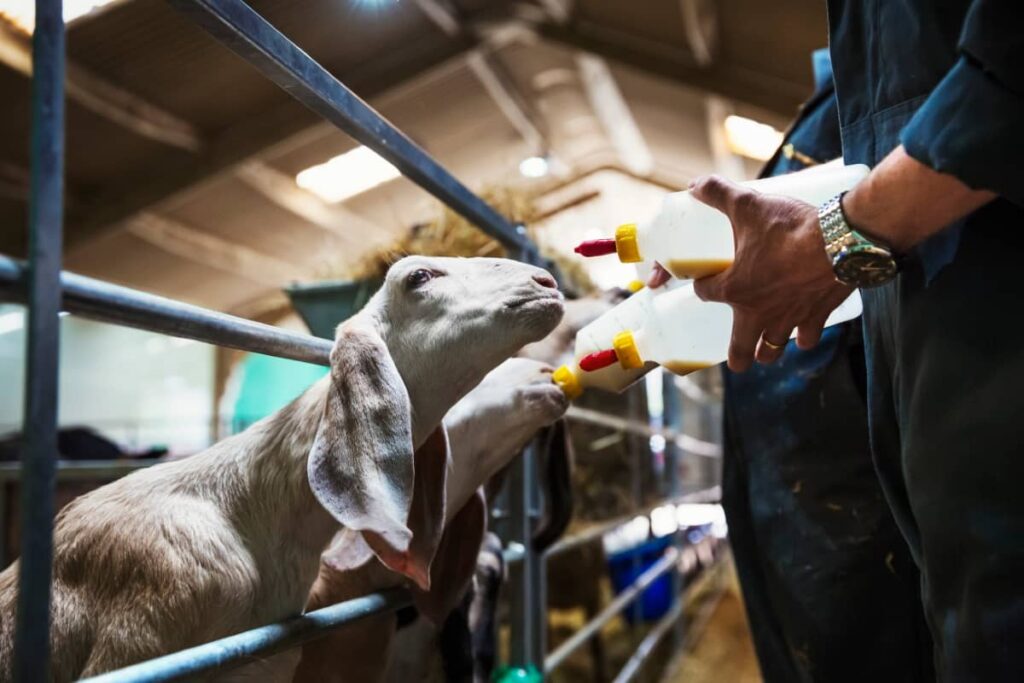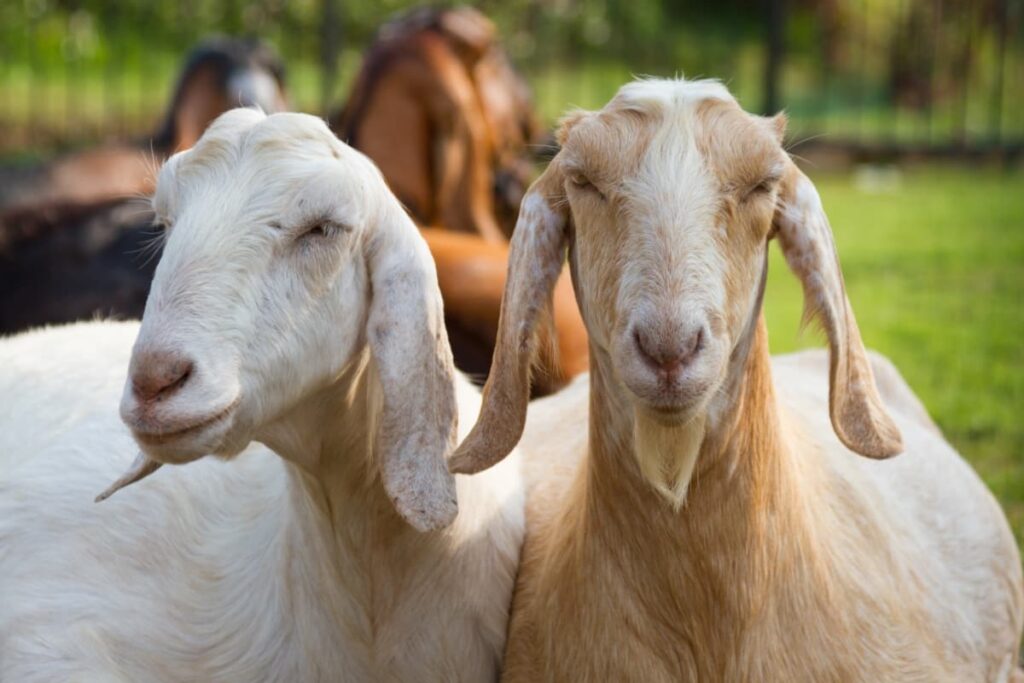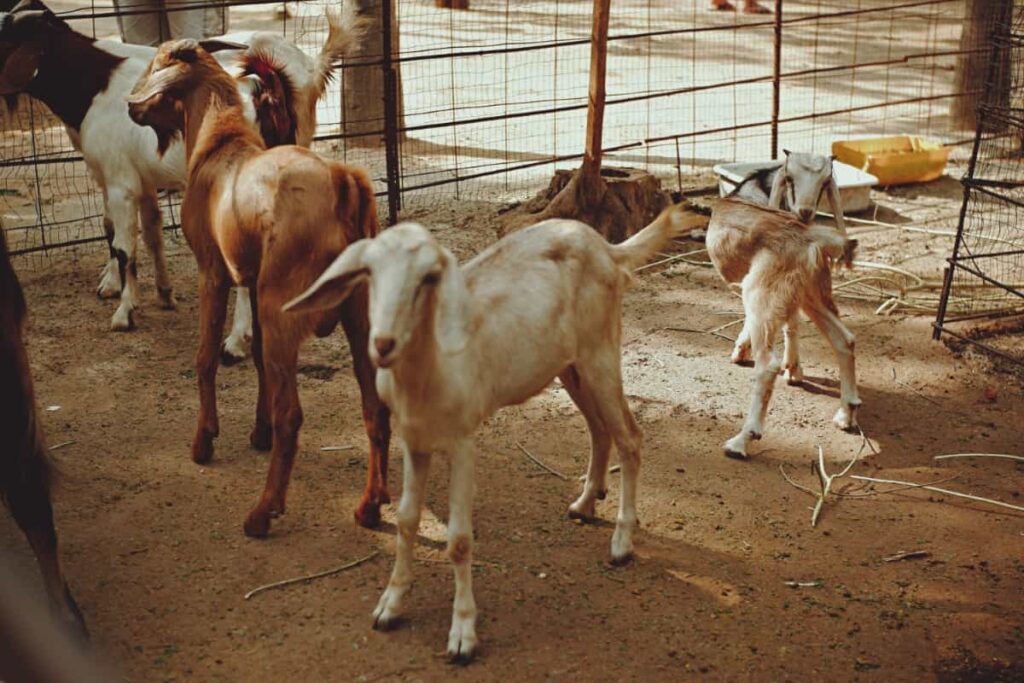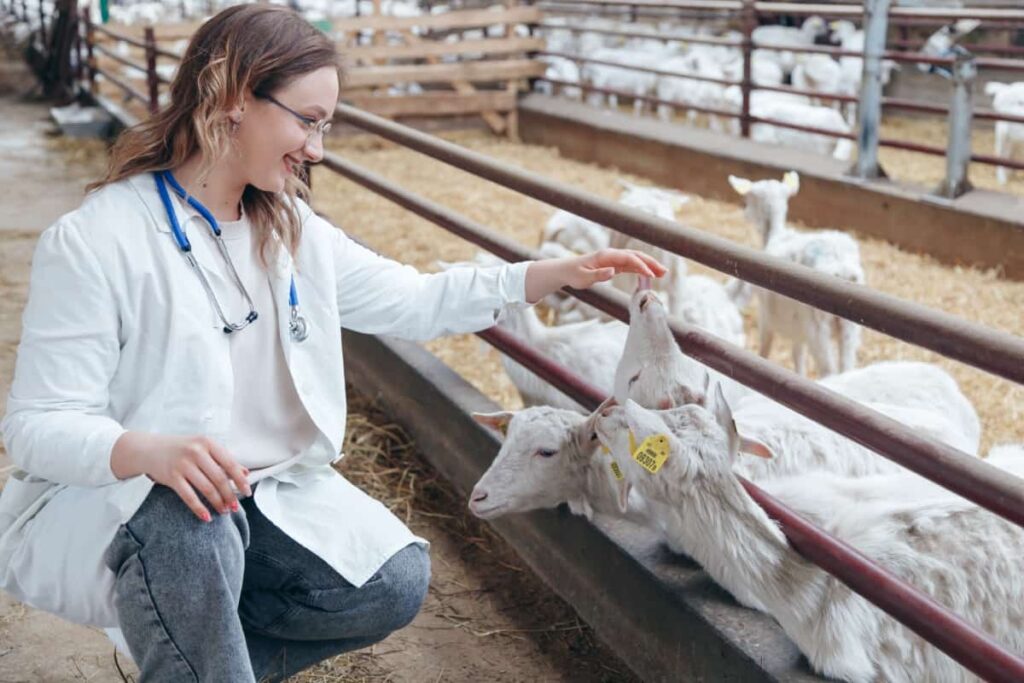Providing essential minerals is not only beneficial but crucial for maintaining optimal nutrition and overall well-being. Minerals are essential for the growth, reproduction, and overall health of goats. They play a major role in various physiological processes, such as bone formation and enzyme function. Ensuring proper nutrition is important for the overall health and well-being of goats.

Mineral Supplementation in Goat Diets
Assessing the Mineral Needs of Goats
To ensure the optimal health of goats, it is crucial to assess their mineral needs accurately. Goats have specific dietary requirements for macro and micro minerals, which play a vital role in various physiological functions. Assessing the mineral needs of goats should start with understanding your goat’s age group or stage of production. Different life stages demand varying levels of certain minerals.
Understanding the specific nutrient requirements of your goats will enable you to select appropriate mineral supplements tailored to their needs effectively. This may involve finding commercial feeds fortified with necessary vitamins and minerals or providing free-choice loose mineral mixes formulated specifically for goats.
Composition of Mineral Supplements
A well-balanced mineral supplement typically contains a combination of major minerals such as calcium, phosphorus, magnesium, potassium, and sodium. These minerals are helpful for proper muscle function, nerve transmission, and enzyme activation in goats. Additionally, trace elements like zinc, copper, selenium, iron, manganese, and iodine are included to support various metabolic processes.
The ingredients used in mineral supplements can change depending on factors like soil quality and regional differences. To ensure an adequate supply of minerals in goat diets, balancing the amounts provided by natural feed sources with those added through supplementation is important. Feeding strategies should take into account factors such as age, stress levels, pregnancy status, and milk production needs.
Macro and Micro Mineral Balance
Macro minerals such as calcium, phosphorus, magnesium, potassium, and sulfur are needed in larger quantities by goats. These minerals contribute to bone development, muscle function, nerve transmission, and acid-base balance. On the other hand, microminerals like iron, zinc, and copper selenium are required in smaller amounts but are equally essential for enzyme activity and overall metabolic processes.
In case you missed it: Utilizing Goats for Weed Control in Pastures and Woodlands

Common Mineral Deficiencies in Goats
One common mineral deficiency seen in goats is a lack of copper. Copper is essential for proper metabolism, immune function, and the production of red blood cells. When goats don’t receive enough copper in their diets, they may exhibit symptoms such as poor coat quality, anemia, reduced fertility, and even bone abnormalities. Another mineral that goats often lack is selenium.
Selenium is an important antioxidant that supports immune function. Goats deficient in selenium may experience muscle weakness, impaired reproductive performance, weak kids at birth, or even white muscle disease. Zinc deficiency can also occur in goat diets. Zinc plays a major role in many bodily functions, including wound healing, immune system function, growth regulation, and reproduction.
A lack of zinc can result in decreased appetite or weight loss, brittle hooves, skin lesions, delayed maturation, or reproductive disorders. Goat owners need to be aware of these common mineral deficiencies so they can take appropriate measures to ensure their animals’ nutritional needs are met through proper supplementation or adjusting their diet accordingly.
Sources of Minerals in Goat Diets
One common source of minerals for goats is through their diet. Grazing on diverse pastures allows them to consume a variety of plants that naturally contain minerals such as calcium, phosphorus, magnesium, and potassium. However, the availability and concentration of these minerals can vary depending on soil composition and plant species. Additionally, certain feed ingredients can be incorporated into goat diets to increase mineral intake.
Another option for mineral supplementation is through commercially available mineral supplements specifically formulated for goats. These supplements are designed to balance out any deficiencies in the diet by providing targeted amounts of specific minerals needed by goats. Water quality should not be overlooked as a potential source of minerals as well.
Feeding Strategies for Mineral Supplementation
Formulate a well-balanced diet: Start by understanding the specific mineral requirements of goats and their dietary needs. Work with a veterinarian to develop a balanced ration that meets these requirements.
Choose high-quality mineral supplements: Selecting the right mineral supplement is essential. Look for products that are specifically formulated for goats and contain the necessary macro and micro minerals, such as calcium, phosphorus, copper, zinc, selenium, and magnesium.
Monitor consumption levels: Regularly monitor how much minerals your goats are consuming to ensure they are meeting their nutritional needs without overconsuming or under-consuming certain minerals.
Adjust based on life stage: The nutrient requirements of goats vary depending on their life stage (e.g., growing kids versus lactating does). Make adjustments accordingly to meet their changing needs throughout different stages of production.
Monitoring Mineral Intake and Balancing Diets
One way to monitor mineral intake in goat diet is through regular testing of forage samples. This allows you to determine the levels of minerals present in the diet and make necessary adjustments. It’s important to note that different regions may have varied mineral content in their soil, which can affect forage quality.
Another method is through visual observation of your goats’ health and behavior. Signs of mineral deficiency include poor growth, hair loss, hoof problems, reduced milk production, and reproductive issues. On the other hand, excessive intake can lead to toxicity symptoms like diarrhea or even death. By actively monitoring mineral intake and carefully balancing diets according to your goats’ needs, you’ll be able to optimize their overall well-being while ensuring optimal productivity within your herd.
Mineral Supplementation for Special Circumstances
During pregnancy and lactation, goats have increased nutrient requirements to support the developing fetus or produce milk. This means that they may need higher levels of minerals to ensure healthy bone development in their offspring or maintain proper milk production. Similarly, young goats going through a growth stage also have higher mineral needs since they are actively building new tissues and bones. In these cases, providing a balanced mineral supplement can help support optimal growth rates and prevent potential deficiencies.
In case you missed it: Goat Farming Business 101: Exploring Basics of Goat Farm Business

Environmental Factors Affecting Mineral Requirements
The important factor to consider is the geographical location of the farm. Different regions have varying soil compositions, which directly affects the mineral content in forages and feeds available for goats. The climate plays a major role in the mineral requirements of goats. In hot and humid environments, goats tend to sweat more, resulting in increased loss of minerals such as sodium and potassium through perspiration.
In contrast, cold climates may reduce water intake, leading to decreased consumption of minerals dissolved within water sources. Another environmental factor is pasture quality. Goats grazing on low-quality pastures may not receive adequate amounts of essential minerals from forage alone. It’s important to evaluate both the quantity and quality of available forage when formulating a supplementation plan.
Mineral Supplementation for Sustainable Goat Production
Sustainable goat production involves implementing practices that minimize environmental impact while maximizing productivity. When it comes to mineral supplementation, this means using strategies that optimize nutrient utilization and reduce waste. One approach to achieving sustainable mineral supplementation in goats is through targeted feeding based on individual goat needs.
Additionally, sourcing minerals from natural and organic sources can contribute to sustainability efforts. Furthermore, monitoring mineral intake and balancing diets regularly are essential components of sustainable goat production. This helps avoid overconsumption of certain minerals that could lead to imbalances or toxicity issues while ensuring adequate intake for optimal health.
Frequently Asked Questions (FAQ) on Mineral Supplementation in Goat Diets
Why Do Goats Need Mineral Supplementation?
Goats require a variety of minerals to support their growth, reproduction, and overall health. These minerals play vital roles in bone development, muscle function, immune system support, and more.
How Can I Determine If My Goat Needs Mineral Supplementation?
Regular veterinary tests can help identify any deficiencies or imbalances in your goat’s mineral levels. Additionally, you should monitor your goats’ behavior and physical appearance for signs such as poor coat condition, stunted growth, reduced milk production, and weakened immune response.
What are Some Signs of Mineral Deficiencies in Goats?
Symptoms can include poor growth rates, rough hair coats, decreased milk production (in dairy goats), reduced fertility or reproductive issues (such as weak kids at birth), and even skeletal deformities.
Can Over-Supplementing Minerals Harm My Goats?
Yes, excessive amounts of certain minerals can be harmful to goats’ health. It’s important to follow recommended guidelines provided by experts or talk with professionals who specialize in goat nutrition.
In case you missed it: Financial Planning and Budgeting for Goat Farming Business

Conclusion
Mineral supplementation helps meet the nutritional requirements of goats. Minerals are essential for many functions, including bone development, reproduction, immune system function, and overall growth. Goats have specific needs when it comes to essential minerals like calcium, phosphorus, magnesium, and others.
- Types of Grass Growing for Goat Farm
- How to Train Goats for Milking: A Beginners Guide
- Goat Milking Practices and Equipment: A Beginner’s Guide
- Goat Farming for Fiber: Producing Mohair and Cashmere
- Maximizing Goat Milk Production: Tips for Dairy Goat Farmers
- Goat Farming as a Family Business: Strategies for Success
- Profitable Kenya Goat Breeds for Commercial Dairy and Meat Business
- Unlock the Secrets of Oberhasli Goat: Discover Raising and Management Practices
- Ultimate Guide to Myotonic Goats: Explore Profile to Raising